Could the M2 Mac mini replace your Xbox?
'Console quality gaming.'
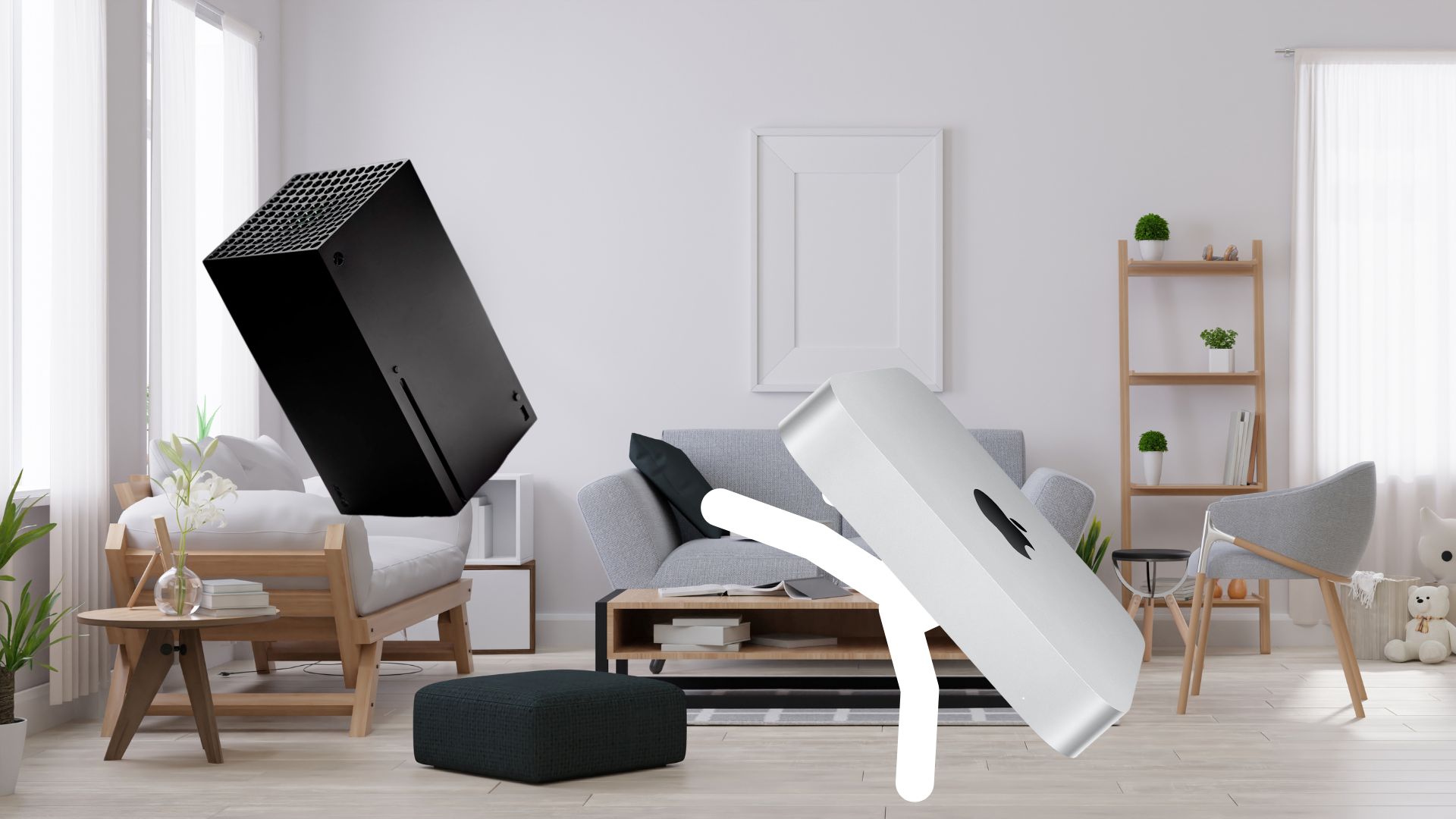
iMore offers spot-on advice and guidance from our team of experts, with decades of Apple device experience to lean on. Learn more with iMore!
You are now subscribed
Your newsletter sign-up was successful
Launched alongside the new MacBook Pros, the M2 Pro, and M2 Max, the new Mac mini is little more than an internal upgrade to the M1 model. However, that chip upgrade will bring some exciting features to the table, such as what Apple calls ‘console quality gaming.’
Apple does not say which console, so that could be performance from, I don’t know, the GameCube or something. Taken in context, however, and when weighing up the price of the base model Mac mini and the current gen consoles, it starts to make sense what Apple might be going for.
All it needs is some games.
What even does console quality games mean?
Apple loves vaguery. Noncomital statements that hint at something really cool without putting any emphasis on what it actually does. The idea that the Mac mini will be capable of console-quality gaming is just one. We’re never told which console the Mac mini will match up with, and there’s no mention of what kind of gaming experience you might have. It’s nothing new, nothing we haven’t heard before, but it’s still a sentence worth looking at.
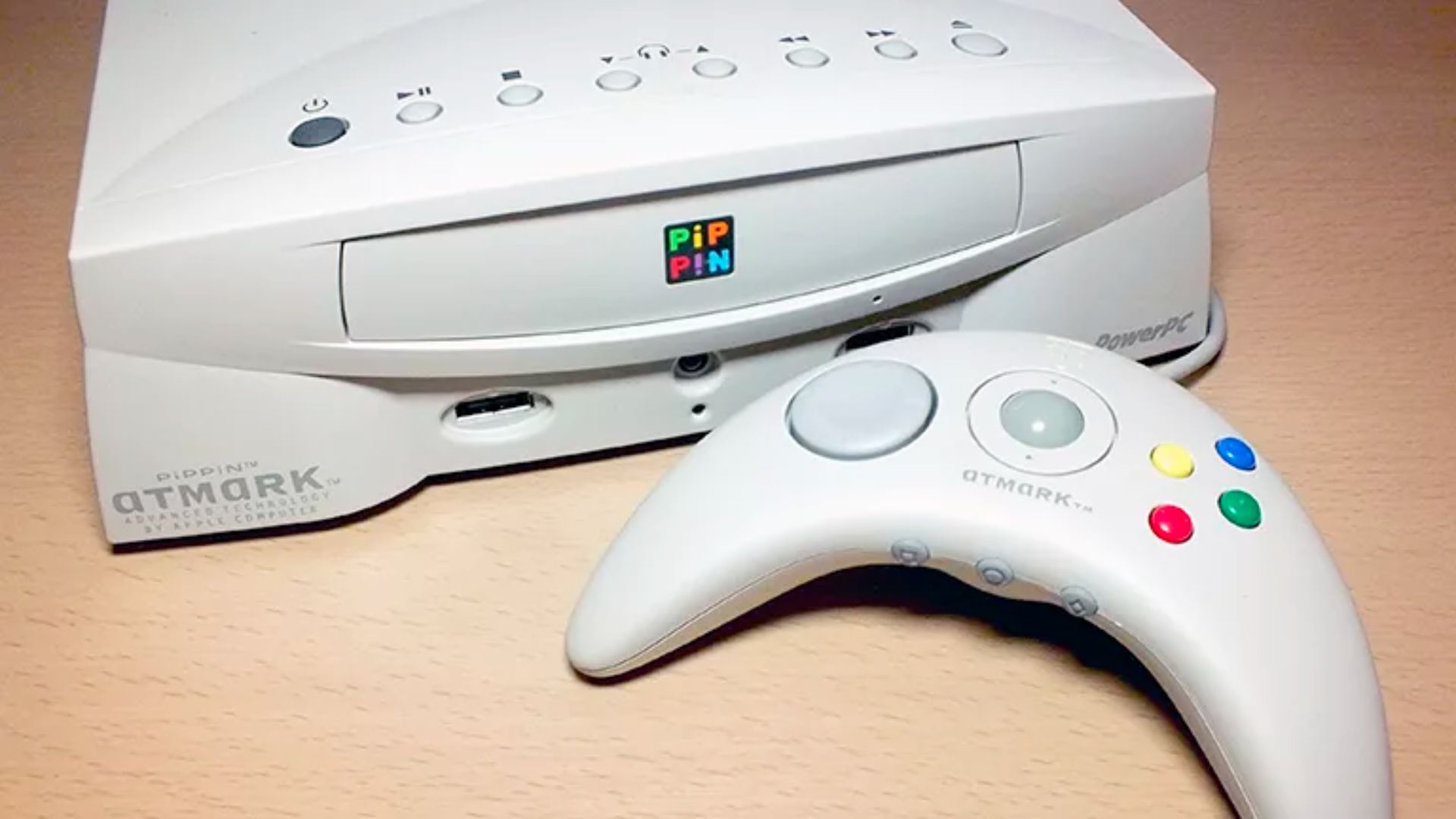
Apple has never shied away from the gaming space. Since the ill-fated Pippin in 1996, the company has had its beady eyes on the ever-burgeoning industry, glaring jealously at those able to succeed. It’s arguably the final step in Apple’s domination of the computer space. iPhone and iPad have become synonymous with mobile gaming, and the Apple TV has been an arcade gaming machine of reasonable competence for some time. You can, after all, buy a Steel Series controller designed for Mac from the Apple Website.
So when Apple talks about console-quality gaming, it feels vaguely worded for a reason. While the Mac mini is first and foremost still a computer you can use for standard, computery things, it is being slotted into a new sector, with a new price bracket and the credentials to match.
The big plan
The M2 chip within the new base model Mac mini has already been shown to be a competent chip. It won’t go up against the best gaming chips and won’t hold a candle to the performance you can get out of a dedicated gaming machine, but it has the juice to fight squarely with the current generation consoles. At least, that’s what Apple seems to want to tell us.
iMore offers spot-on advice and guidance from our team of experts, with decades of Apple device experience to lean on. Learn more with iMore!
It’s that wording that’s critical. Apple isn’t going after the PC market - there’s no point. Those users are long since buried in their multi-thousand dollar custom-built machines, counting all the teraflops of processing meat on their monster graphics card and liquid nitrogen cooled CPU called something like the ‘compute muncher.’ Instead, Apple has chosen a different battleground - the console market.
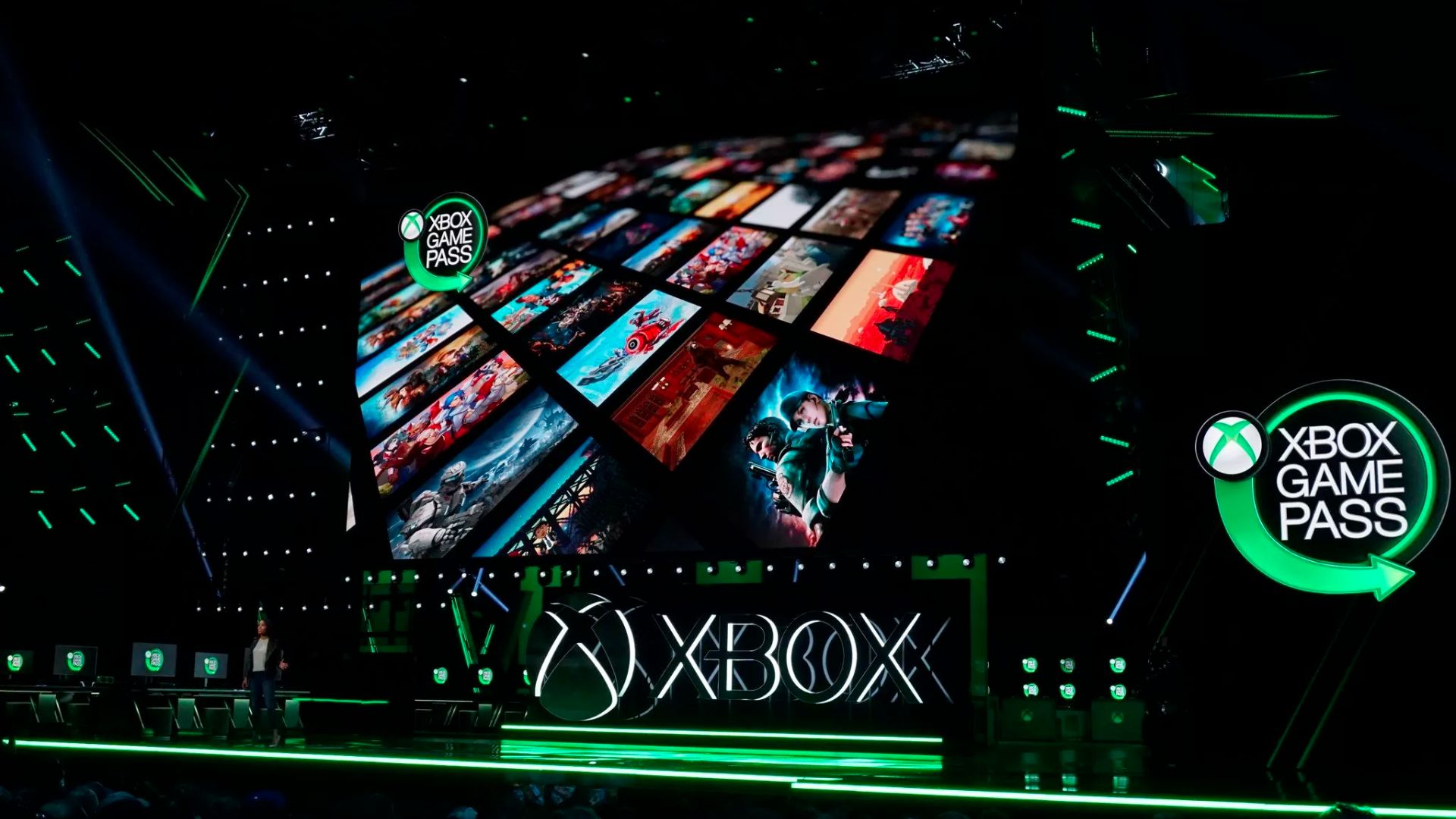
For the longest time, the market has been dominated by three big companies. Microsoft, Sony, and Nintendo have been vying for the spot in your TV center for 20 years at this point, and there’s been little room for anyone else to join in with the fun. However, that hasn’t stopped some eager companies from giving it a go. Google and Google Stadia wanted to bring game streaming to the masses with the console market squarely in its sights, and look how that went. Apple has tried a little before with the Apple TV – a box that plays games and sits under your TV. The Android boxes from years ago turned out to be mostly nonsense and a couple of retro upstarts that have only managed to gain small niche footings with enthusiasts. There has never been something that goes up against the Xbox, Playstation, or Nintendo families of consoles – but maybe Apple now wants to change that.
How it’s going to work
So Apple has a market in mind, but it doesn't want to throw its entire lot in the ring quite yet. So instead, release a small PC that people will buy as a PC with a small word in the press release about console-quality gaming. Sow the seed in consumers' minds, but don't do much. Instead, announce a couple of natively supported games that people like, and then work away at it in the background until you've got Mac minis in people's homes.
For only $100 more than a PS5, you’ll be able to play games and do some work and connect to a remote server to watch movies.
You can see how an approach like this might work, eventually building up a good enough library of games so that you can launch it as a gaming machine a little later. The Mac mini, after all, is the perfect size and shape to become an under TV device. It even has more features than the average console. You could browse the web in a proper browser with it, get some words typed out on your TV with pages, and do other computer-centric tasks. For only $100 more than a PS5, you’ll be able to play games and do some work and connect to a remote server to watch movies. It’ll even add to an existing Apple ecosystem, easily connecting phones and other devices. It’s obvious why Apple might want to aim the Mac mini at this audience, even if it has the job of the century.
What’s not going to work
See, console gamers are a strange lot. We like a games system to be just that - games systems. We have other computers to use to do work and the like. If we wanted a PC that played games, we’d buy a gaming PC. There’s also an element of loyalty to a system that Apple seems to have forgotten about, even though it pretty much started the ‘I’m a Mac user, get lost Windows’ mindset.
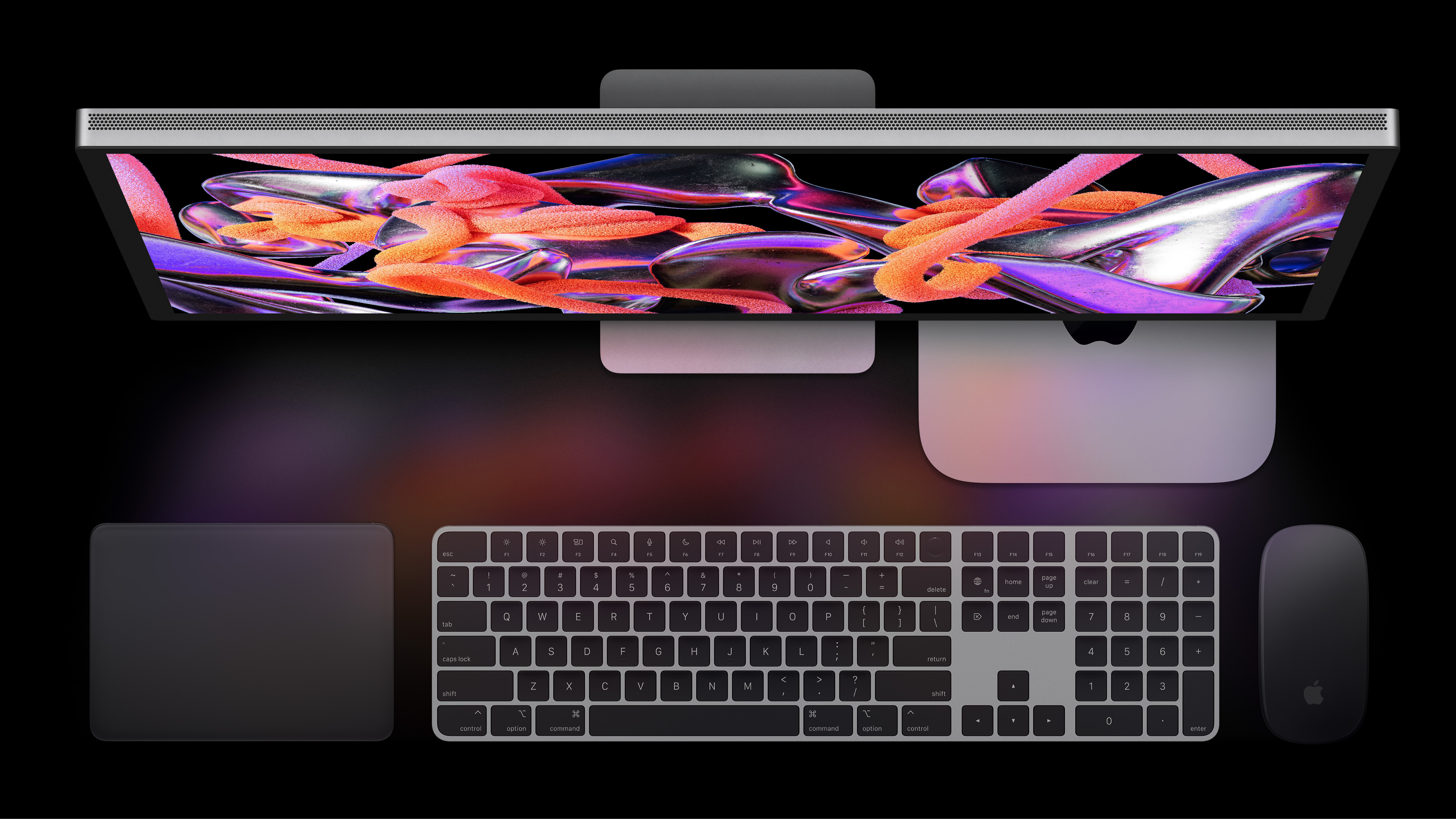
That’s not the only part that makes me wonder about Apple’s long-term commitment to so-called ‘console-quality gaming.’ That’s right; we’re back to the vagueries again. In recent years, Apple has been announcing a couple of titles available to play natively on Mac Silicon in macOS. Resident Evil Village is out now and costs $34.99. No-Mans Sky has been coming for the last year, and there are several indie titles like Gris. There’s one massive thing with these games that will only irritate gamers, however. They’re all at least a year old.
Console launches live and die by their games libraries, and if it wants the Mac mini to make any impact on the console market, then Apple will have to get more games ready to go. Two big older titles aren’t enough, and as we’ve seen from the Apple TV and other systems that play mobile games on the TV, neither are a couple of indie darlings. So no, to get the Mac mini to become something gamers want to stuff under their televisions, you’re going to need to get that game library much bigger. After all, there’s more to console quality performance than the frame rate and processing oomf. You can be good at playing games all you like, but if there are no games to play? You’ve got a problem.
What about Steam?
Steam has run on Mac for quite some time now, with supported games running ok for just as long. The biggest issue with these games is that they don’t run natively on Apple hardware. They’re technically running in a compatibility layer so that you won’t get the best experience possible. Even then, some of the biggest Steam games aren’t available on Mac, like Final Fantasy XIV online or God of War.
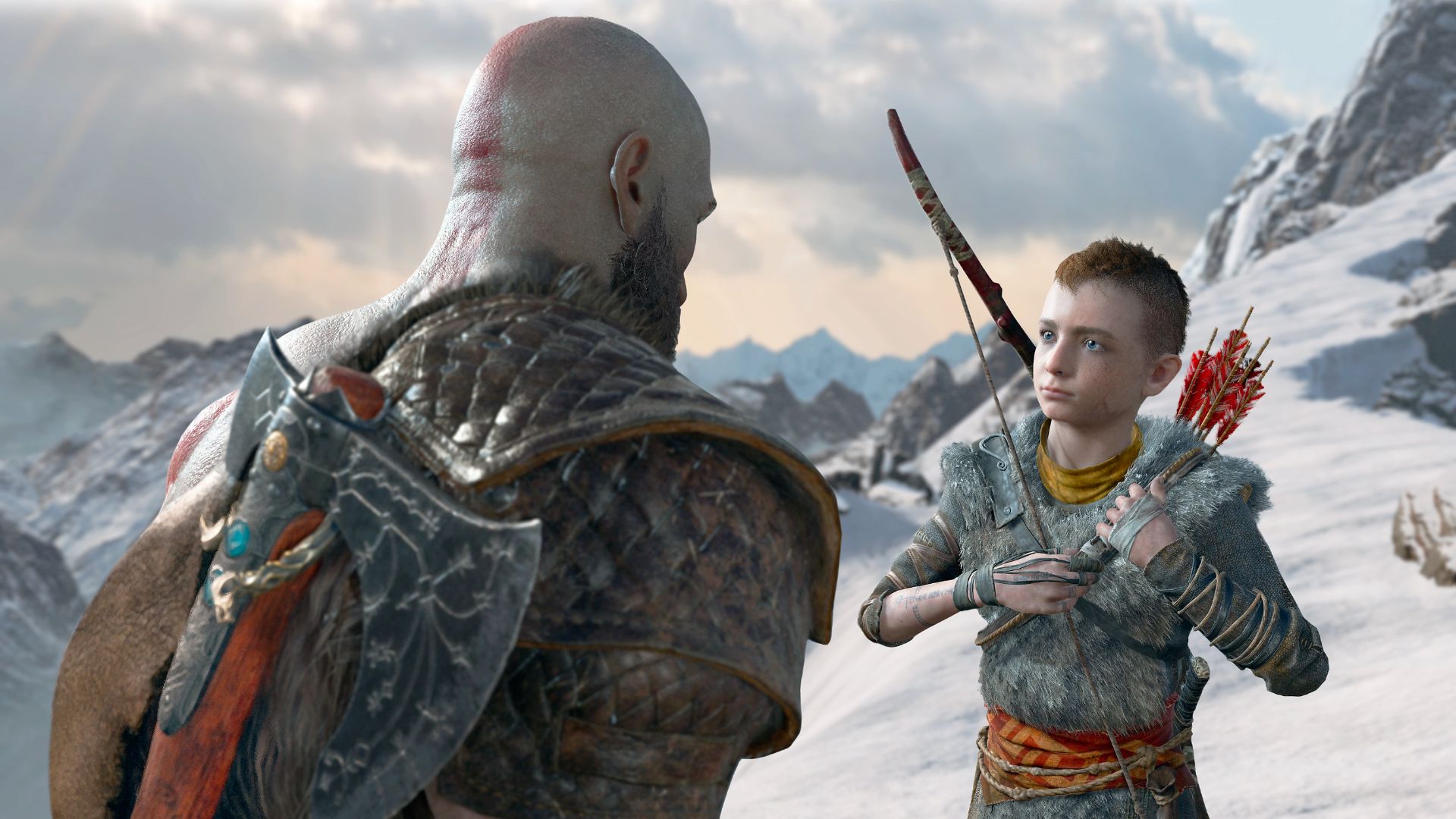
The best way to look at a reasonably sized game library is to look at game streaming platforms like Nvidia Geforce now. That's a service you can use straight out of a browser and get graphics performance up to a GTX 4080, Which I'm told is a lot of gaming horsepower. There are 1500 games available (or so Nvidia says - and I'm sure not going to count), and it works with macOS. The problem with this approach is that it requires an impeccable Internet connection to work correctly. So, if you've ever seen the buffering wheel on a Netflix show, you're going to be out of luck on the 'console quality gaming' front, let alone the ‘4080 quality gaming' front.
Apple Arcade is perhaps the most reliable source of games, and there are loads of brilliant titles to be had. It works like Xbox Game Pass, albeit with, you guessed it, fewer big titles. It's a significant first step for the Mac mini to become more like a console, but it's just not enough to make the Mac mini any more than an 'oh. That's cool' when you look at it for gaming.
It might not replace your console - yet
The launch of the Mac mini was one of the highlights of January. It came out of nowhere with a new price and a super cool new chip. Unfortunately, it also left me with unanswered questions even after its retail release. Why does Apple want to look at the console market? Where on earth is No-Mans Sky? And why would I want to replace my PS5 with it? Apple itself hasn’t done much to let me ruminate on these questions, but ruminate I have – and I think I’m starting to get it.
As I said before, Apple is playing the long game. Seed the interest. Get people like me to ask these questions about the machines and their gaming credentials. I wonder if I’ll ever have a Mac under my TV for all my computing needs. Perhaps there’s something to be said about a remote desktop. A Mac that stays centralized in one place while you use it at various stations around the house. A Mac that sits under my TV, ready to play some games when I’m done with work elsewhere. Games that, as yet, aren’t out yet.
The Mac mini will be great for playing games – now it just needs some to play.

As iMore's Senior Staff writer, Tammy uses her background in audio and Masters in screenwriting to pen engaging product reviews and informative buying guides. The resident audiophile (or audio weirdo), she's got an eye for detail and a love of top-quality sound. Apple is her bread and butter, with attention on HomeKit and Apple iPhone and Mac hardware. You won't find her far away from a keyboard even outside of working at iMore – in her spare time, she spends her free time writing feature-length and TV screenplays. Also known to enjoy driving digital cars around virtual circuits, to varying degrees of success. Just don't ask her about AirPods Max - you probably won't like her answer.
